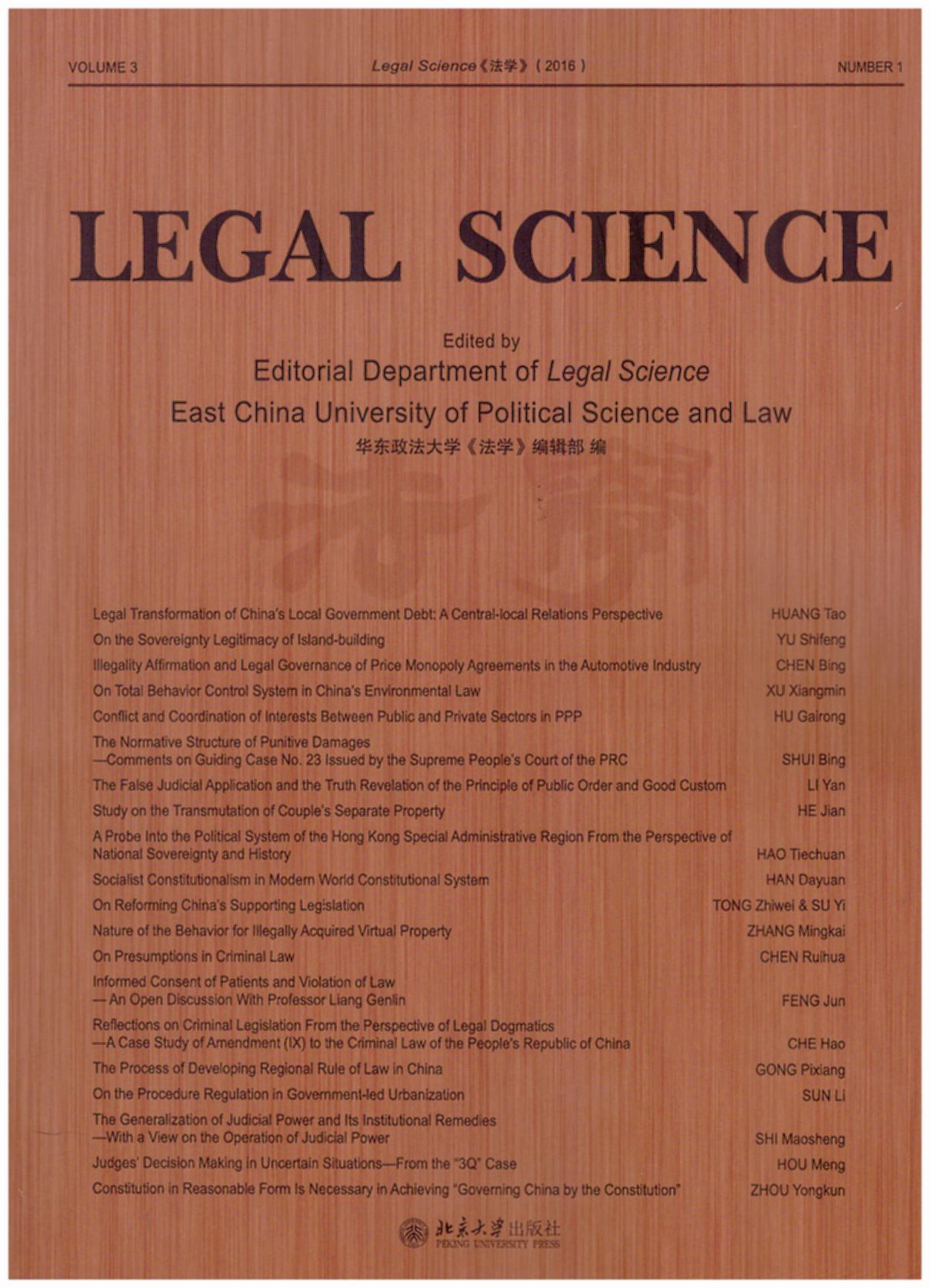法律谈判理论视角下的中国教育法典编纂方法研究
引用次数: 0
摘要
本文章由计算机程序翻译,如有差异,请以英文原文为准。
Research on the Compilation Method of China’s Education Code from the Perspective of Legal Negotiation Theory
Codification is an important legal system, which aims to make it have a more perfect legal system through revising, perfecting and sorting out the existing educational laws and regulations, so as to better manage and standardize educational activities. This paper attempts to explore the possibility of inter-civilization dialogue from the perspective of Habermas’ legal negotiation theory: the elements of democracy, legitimacy and rationality in Habermas’ legal negotiation theory are closely related to the ideas of inter-civilization exchange and mutual learning in comparative law, and the relationship between them can provide effective guidance for inter-civilization dialogue. Until to-day, the codification of education law has been the general trend of the times and the trend of the people, and then it has a solid ideological foundation, institutional foundation and practical foundation. However, it is undeniable that it is still faced with the problems that are difficult or impossible to complete in the theoretical, institutional and practical aspects of the education law code, such as the difficult task of education legislation revision and codification. Through the comparison of the model of the education code in Germany, Japan and the United States and the legal education culture behind the code, from the perspective of globalization, the theory of Habermas’ legal negotiation gives the codification of China’s education code with a method of enlightenment: the codification of education law in our country should adhere to the law of law methodology, rational legislation methodology and democratic legislation methodology, and the codification of education law should start from consolidating the theoretical foundation and building a solid foundation, integrating the current legal system of education, and setting up the codification scaffolding scientifically. At the same time, it is also worth us to construct a plan suitable for the codification of China’s education law on the basis of studying the excellent system and culture of foreign code and combining with China’s national conditions.
求助全文
通过发布文献求助,成功后即可免费获取论文全文。
去求助
来源期刊
自引率
0.00%
发文量
10755
期刊介绍:
Legal Science is a Chinese legal journal sponsored by East China University of Political Science and Law. It is one of a few legal theory monthly journals in China, which was founded in 1956. In the beginning of the publication of Legal Science, the aim of the journal was to draw its attention to the society, face the reality, follow theory innovation, and promote the rule of law. The journal had published a series of influential law articles at the time, and thus it won popularity among the scholars due to its timely response to the academic focus. The current circulation of Legal Science ranked first among law theory journals in China, and it is one of the few legal publications collected by the congressional libraries in the United States, the United Kingdoms and etc. At present, Legal Science has been entitled successively the “authoritative journal” by the Report on Chinese Academic Journals Evaluation released by Wuhan University Research Center for China Science Evaluation and by Report on Chinese Humanities and Social Science Journals Evaluation (2014) released by Chinese Academy of Social Sciences (CASS) Evaluation Center. The journal is also awarded as the “Chinese Core Journal (Legal Category)”, “Top 100 National Social Science Journal”, “China Core Journals of the Humanities and Social Sciences”, “Chinese Academic Journal Comprehensive Evaluation Database (CAJCED) Source Journal”, “China Journal Net, Chinese Academic Journal (CD) Full-text Included Journal”, and “Chinese Social Sciences Citation Index (CSSCI) Source Journal”.

 求助内容:
求助内容: 应助结果提醒方式:
应助结果提醒方式:


